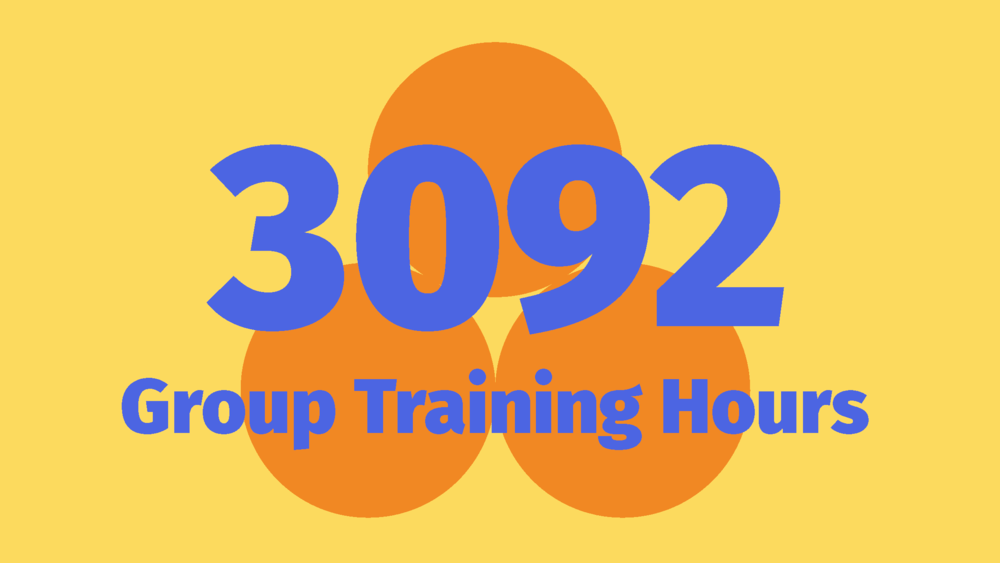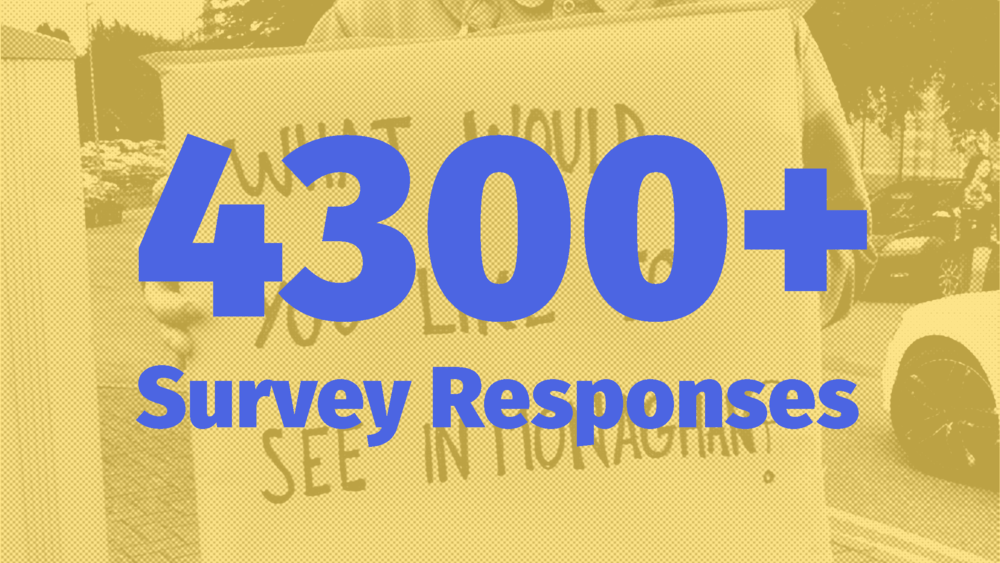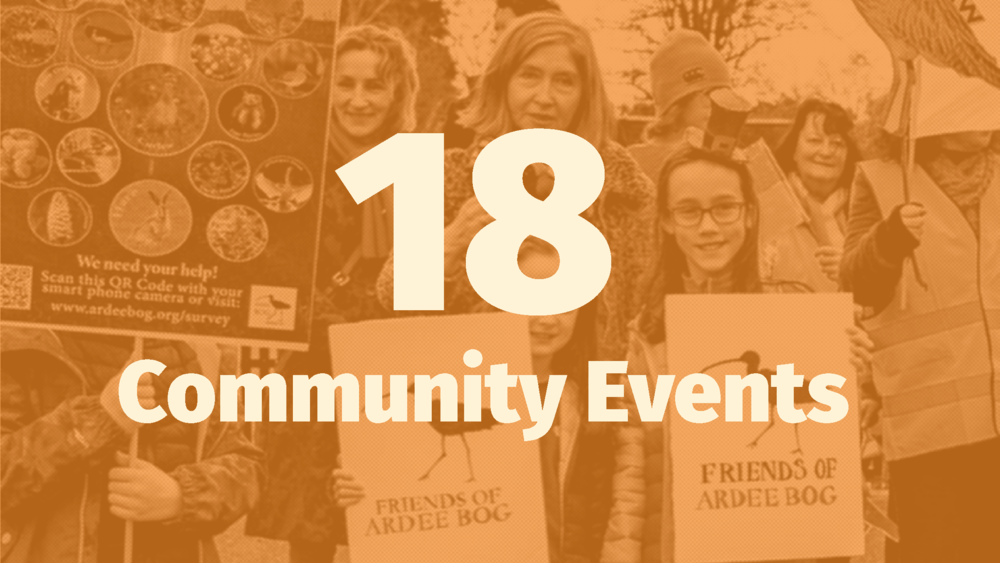
Project Showcase
Over the past three years, we have learned so much about community development that will support future projects across the region and beyond. Local people from across the six border counties have developed innovative solutions to many local challenges while forging new connections and learning new skills to accomplish exciting projects.
Browse the Case Studies below to learn about the various achievements of community groups from agricultural initiatives to regeneration and much more!
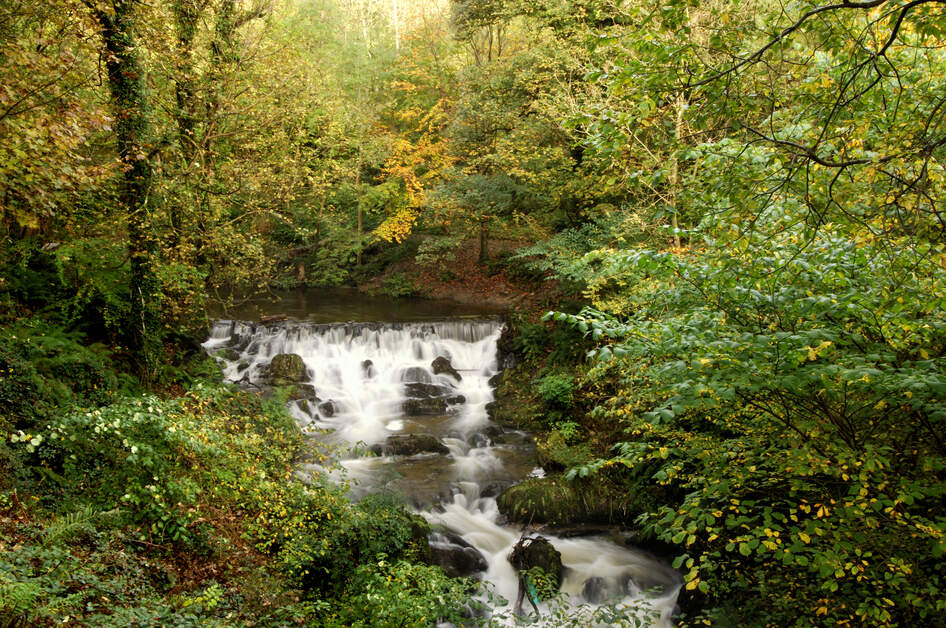
River and Lakeshore Amenity Development in Co Cavan - Tuesdays 7-9pm
River and Lakeshore Amenity Development
This group of local residents explored the viability of developing a recreational walkway along the rivers and lakeshores of Virginia, Co. Cavan. Some group members were more familiar than others, with many living on land adjacent to the river. The group surveyed this feasibility and engaged the wider community to assess the appetite and support for this initiative. Through this engagement, many other ideas for projects emerged that could be developed alongside the rivers and lakeshore walkways, including picnic facilities, play areas for children, and carpool services with parking facilities for children and families.
Bailieborough Secondary school
This group of transition year students split into two groups to explore menta health awareness in schools and develop solutions for student resource access. One group specifically examined men's mental health in schools and the stigma surrounding this topic. Through their research, they found that many students felt self-conscious about seeking support for mental health. They came up with the idea of an online, virtual chat room with mental health specialists who could provide anonymous support via a chat room facility, providing a safe space for students to feel safe and supported.
Attracting People to Live and Work in County Monaghan
This group delivered in-depth and representative research into issues in the community around services, facilities and opportunities in an attempt to understand where Monaghan could improve its appeal as a place to live and work. Many new community members who had never had the opportunity to connect with neighbours began a network to explore viable options to improve life in Monaghan. Following public surveys, and guest talks delivered by MID representatives about the LEADER Smart Villages framework, this group decided to focus on rural enhancement, specifically, a marketing campaign for the area to encourage people to live and work. The group concluded that a series of video testimonials were the best route to achieve this and could be representative of the many beautiful and unique amenities that Monaghan has to offer.
Designing Kiltyclogher’s Future
This group in Kiltyclogher decided to explore and develop a wishlist for different areas of development that could be motivated in the town. Each individual in the group had a different knowledge or skill about how they could improve local wealth and civic pride and these ideas ranged from utilising derilect buildings to painting local shop fronts.
The Journey
The group collectively agreed that highlighting the existing facilities and amenities in Kiltyclogher would enhance the appeal to visit and invest in the Kiltyclogher community. They began a research campaign to gather information on what strengths and features could be promoted.
Next Steps
The group developed a short promotional video clip that portrayed footage of Kiltycloghers local community and the surrounding landscapes with a narrated voice describing the best amenities; promoting and appeal for tourism and social enterprise investment.
Breathing Life Back into Ballymote
The expected outcome of this course was to find a way for the various groups within Ballymote to work together towards a common goal. The working group identifies various goals but realised a representative structure would need to be put in place first. The outcome of the innovating communities course was the group held a town hall event to understand how a representative and inclusive community council should be established.
The Journey
Throughout the process the group faced challenges of their own, one being the town politics and not wanting to miss-represent any individuals or groups in the community.
Next Steps
The town have continued to meet, and recently had another public meeting which was well attended and was more focused lead.
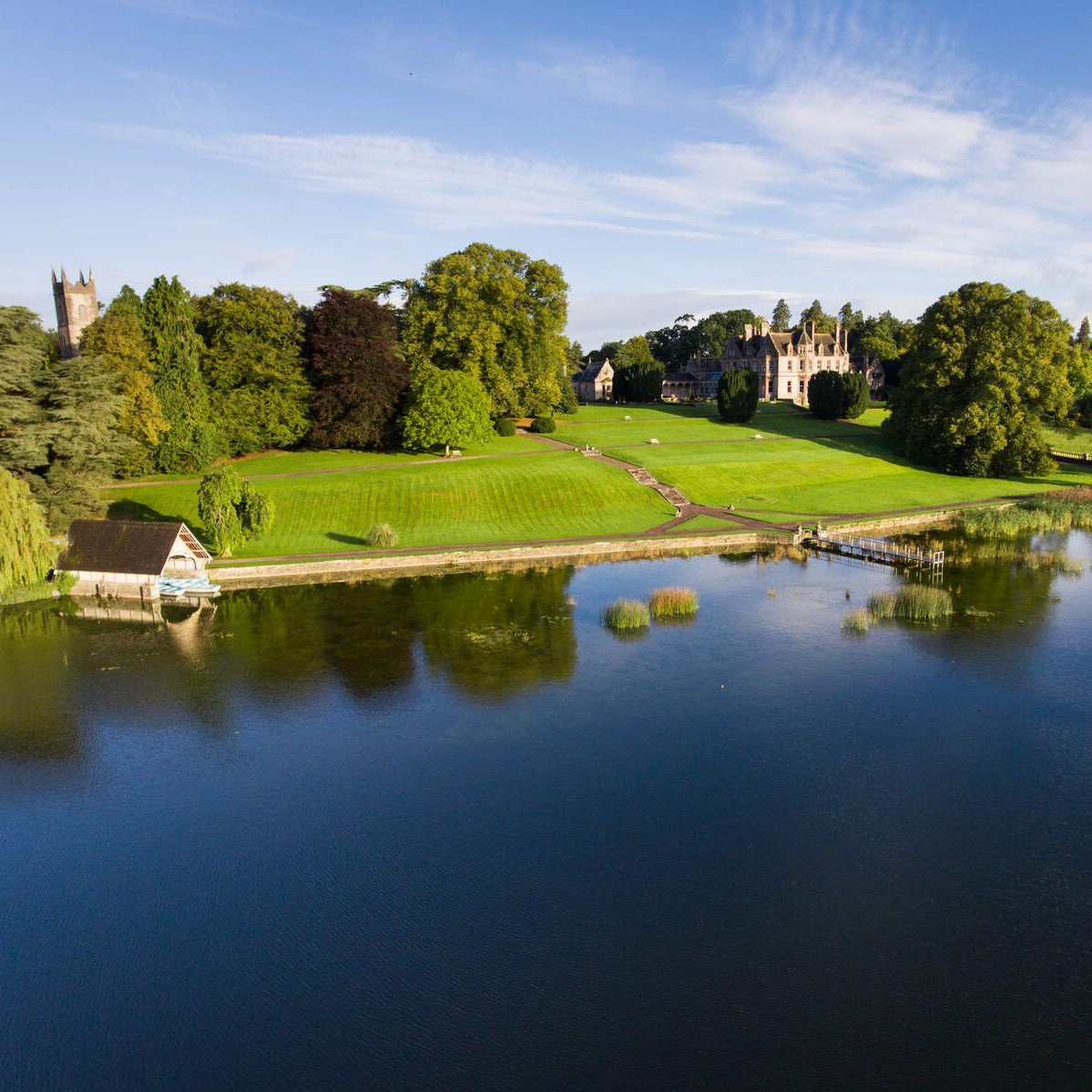
Climate Action, Biodiversity and Sustainability
Challengers arrived at this course with an extensive range of interests and expertise in the wider Challenge theme of Climate Action. Some had a keen interest in food waste and recycling, others with a focus in water management. While their specific focuses varied, what brought the Challengers together was their passion for a better and sustainable planet.
The Journey
Later in the process, they developed those three themes into a Mission Statement and drafted a Sustainability and Biodiversity calendar prototype. The team thought carefully about how their prototype could work digitally on a website, using feedback from the public to improve the proposal.
Next Steps
To bring their idea to the community, the team tested physical ideas like community mural calendars and a climate calendar portal. They chose Pecha Kucha format for a memorable presentation, carefully selecting themes and images to showcase user-centred origins and community needs. The team want to use their design thinking skills to emphasise skill-sharing, knowledge-sharing, and coming together for impact.

Innovating Communities: Loreto School Group 2 - Healthcare and Costs
A group of Transition Year students in Loreto School, Letterkenny, Donegal, came together to undertake the Innovating Communities Design Thinking course. The group began without a clear challenge in mind, but with lots of ideas. Through the first few lessons, the group narrowed down their Challenge focus to that of Healthcare and Costs (financial, emotional, mental). The group were incredibly knowledgeable and passionate about their Challenge focus, many having lived experience of the Irish healthcare system and frustrations with it. The group chose this challenge theme as their focus, with the aim to enact change and raise awareness around the topic.
The Journey
The group established their Users and Stakeholders, discussing a wider group before narrowing their focus down to fellow school students who may be facing struggles around Physical and Mental health. The group were keen to find out how other students were feeling about their mental health in particular, and what support systems they used. They used the community engagement method of Graffiti Walls to reach out to their users. The insights they gathered from this were then used to inform a list of support resources that could be attached to a QR code on a poster and placed around the school.
Next Steps
The group's poster concepts were finalised and are still to be printed. These will then be placed around the school and the group hope that the resources linked by the QR code will be used by students to support future students' mental health. they are keen that discussion continues to open up around mental health and removes some of the stigma surrounding it.
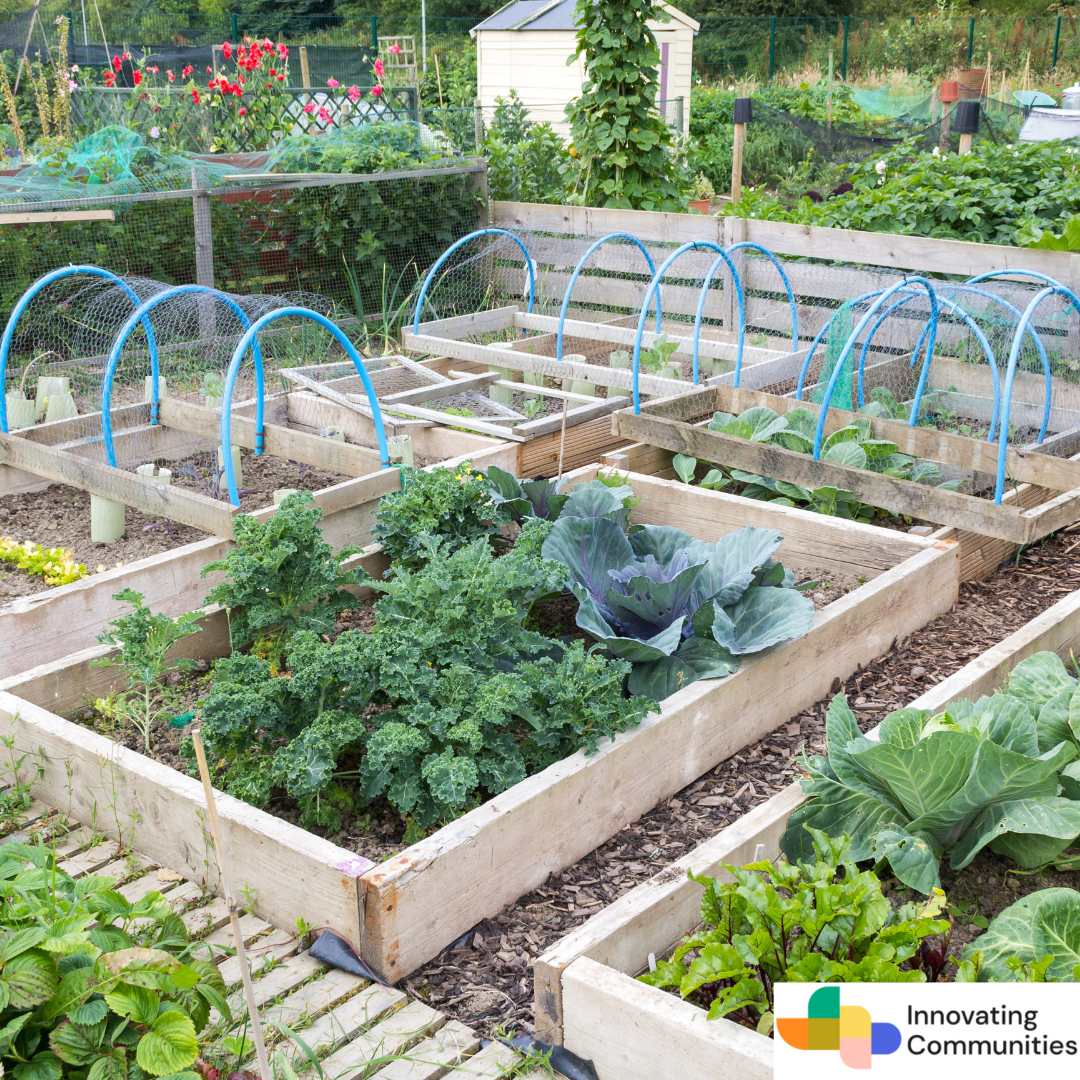
Universal Design Community Gardens and Allotments in North County Louth
Group consisted of community members from Dundalk, Co.Louth. They came together to tackle the challenge of creating an inclusive community garden for all of Dundalk.
The Journey
The group carried out user-centred research, including engaging with a member of Mud Island Community Garden in North Strand, Dublin and a digital survey to gather feedback from their Users/Stakeholders. They collated potential locations for the community garden. Held and in-person community engagement event at the Marshed Shopping Centre in Dundalk to gather feedback and raise awareness about their challenge. They then formed a committee, assigning roles and responsibilities - format explained by group co-trainer, Dara. They creared social Media accounts, draft funding proposal, research portfolio and bank accounts created alongside an official mission statement.
Next Steps
This group received land in Dundalk from the County Council. Have now been put in touch with Garden Designer, Peter Donegan of RTE's TV series: DIY SOS The Big Build Ireland. Peter will support group and offer help with garden designs.
McGahern experience / Cavan Leitrim Rail Trail
This course explored the revival and development of the former narrow-guage railway in ballinamore, Co. Leitrim. This group initially intended to pursue a greenway along the narrow-guage, however, through their community consultation and community-led engagement events, they found that there were many other possibilities for the trail. Heritage preservation was one of the strong themes that emerged from consultatiom, with many community members reminising features of the former facility including the sound of the whistle blower to alert people that the train was coming. This group conducted user centred research surveys at a christmas market to understand how young people and children would like to see the trail developed - they found that, overwhelmingly, the children would like to cycle along the route, which ecouraged further research into a cycle trail along the route. Among other ideas were repurposed telephone boxes which could be used as audio installations, playing recorded oral histories about the railway by community members.
Establishing Independent Artist Studios in Drogheda
Group consisted of members from the pre-established Artists' Collective, Borrowed ground, basedin County Louth. They came together to tackle the challenge of 'Establishing Independent Artists Studios in Drogheda'. The space would allow members of the group to work, develop their practice and contribute to the vibrant local art scene.
The Journey
The Group broke down their challenge, established their hopes and fears, big ambitions and realistic outcomes. Established what the studios needed; An Affordable Artists studio with spaces to chat and hold workshops. Users were established, including: Artists and Creatives, County Council, School Children, Galleries and other local organisations. Group explored the possibility of leverging social media to build an identity and voice. Explored how to refesh their current identity and commitment of time and money.
Next Steps
Group secured funding for their space during the course. Course helped the group to identify the key features of the space they needed. Have now secured a studio space on Fair Street in Drogheda.
St. Angela's College
The students are first year home economics students. They chose food waste as their research area. They cook in class multiple times a week and their brief is usually to cook for a family of four. The course took the issue of food waste and the impact that food waste has on our environment, particularly the carbon emissions of food waste and the implications of this. We looked at common assumptions, for example a perception that if you are composting your food waste you are doing less harm.
The Journey
As part of the course we surveyed students and staff in the school canteen and the college campus. The group collected considerable data and organised this qualitative information according to the themes that emerged. The class were great to work with and shared their experiences openly. Many of the students spoke about previous generations and how food waste is a relatively new issue.
Next Steps
The students worked on posters which are going to be put up in common areas of the college. The participants said that the course ties in well with their other courses and that they will be able to apply what they learned to other subject areas, particularly their sustainability course.
Patrician High School Innovating Communities
This group of students split into three groups; one group explored gender inequality among same sex schools. This group is an all boys school but they collaborated with a local all girls school and expressed interest that this was something they thoroughly enjoyed as a more fruitful experience. The second group explored discimination and how to ensure maximum inclusivity in their local area. They created a town model called Tilted Towers, which exemplified personas of people who may encounter discrimination. Both groups circulated surveys and created to Grafitti walls to gather user research and collected data and feedback from community members. The fictional town also identified amenities and facilities that are wanted by the communty of Carrickmacross including; a hospital and a doctors office.
Next Steps
All students who took part in the project described the collaborative process as enjoyable and stated that they would most definitely enjoy future projects that incorporate collaborative dynamics and encourage working alongside the all girls school.
A recreation corridor from Donegal's heartland to the coast
Challengers began this journey with a clear Challenge in mind: to develop a plan for a new recreational corridor in Donegal for locals and visitors to enjoy. It was originally envisioned that creating this scenic route between Donegal Town and Ballybofey-Stranorlar could provide a boost for tourism, the environment, and stimulate small businesses and communities along the way.
The Journey
During the Empathise phase, the group ran two community-engagement events in order to gain more insight into their Challenge from people in the communities around the Barnesmore Gap: One in Donegal Town and one in Ballybofey/Stranorlar. The group created a survey which they handed out at these events, from which they received 225 responses from local people with detailed, qualitative information.
Next Steps
At the end of their Innovating Communities journey, the group looked forward to the opportunity of acquiring funding. The group were also keen to continue their community engagement, sharing the stories, experiences and tales of the Gap among themselves and the wider community. Since completing their course, the group have continued to pursue their goals, including partnering with the Social Enterprise: Ballybofey Stranorlar Integrated Community Company (BASICC) to deliver two walks in the Barnesmore Gap as part of the Twins Towns Walking Festival Event.
Innovating Communities: Loreto School Group 1 - Environment and Recycling
A group of Transition Year students in Loreto School, Letterkenny, Donegal, came together to undertake the Innovating Communities Design Thinking course. The group began without a clear challenge in mind, but with lots of ideas. Through the first few lessons, the group narrowed down their Challenge focus to that of Environment and Recycling. From the beginning, they were clear they wanted their efforts toward the Challenge to be visible and to have an effect on others, encouraging them to form more sustainable daily habits.
The Journey
The group narrowed their Challenge focus to 'Environment and Recycling'. From here, they established their Users and Stakeholders before moving into User-Centred research to be carried out within their school. This included a Survey sent around the school, a curious object named 'Yoshi' to gather feedback from students within school, and a discussion with the School Maintenance man, John, who keeps track of materials being disposed of, how much, and what could be recycled. The group took the results of their user-centred research and narrowed their project focus to look at tackling littering and proper waste disposal within the school. They developed poster designs to encourage students to dispose of waste instead of littering, as well as a bin proposal to pass on to the school, encouraging the introduction of segregated recycling bins.
Next Steps
The group's poster concepts have been finalised and will the printed. The group will place these around the school. Their Bin Regeneration proposal has also been turned into a graphic and can be submitted to the school. They hope that their work can begin to change daily habits in fellow students and create a clearner and more environmentally sustainable school environment.
Ecological Survey of Ardee Bog
From February to June, 2022, community members and a pre-established group called 'Freinds of Ardee Bog', came together as Challengers. The Group aimed to tackel the Challenge of completing an ecological survey of Ardee Bog and to raise awareness around the Bog's importance to the wider community.
The Journey
In the Empathise stage, the group undertook multiple Community Engagement events to gather feedback and raise awareness. This included a St.Patrick's day parade and consultation with ecologise, Kate Flood. In the Ideate phase, the group then developed the concepts of a Bog Cafe, School Workshops in Educate Together, Street Fest Bog BBQ and a guided walk on the Bog with Kate Flood. The group held all events, and developed all ideas with the community in mind at all times, keeping them informed and included.
Next Steps
After all of their hard work and commitment, the group went on to form a conservation committee which helped them to secure 16,000 euros in funding under the Peatlands Engagement Scheme alongside a mentor and ecologist to audit the bog. The group have also used their funding to host a series of initiatives including the bog cafe, musical event inspired by the bog and site visit.
Over 2 years we've achieved...





